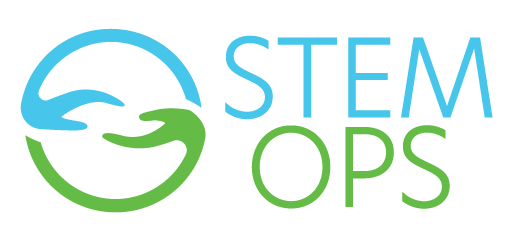By Neil Schiavo, STEM Opportunities in Prison Settings

STEM Opportunities in Prison Settings (STEM-OPS), an NSF INCLUDES Alliance, has a vision that “All persons impacted by the carceral system are able, and encouraged, to pursue a culturally responsive and equitable high-quality STEM education and career.”
Our work encompasses a broad range of activities to address obstacles that currently limit access to STEM education and careers. A critical, common strategy across all STEM-OPS activities has been the inclusion of the voices and input of those who have been most directly impacted by the current system and its inequities: people who are currently or formerly incarcerated. Our commitment to the involvement of people who have been directly impacted is not only a matter of morality to correct historical wrongs ─ we also know that the work within STEM fields is greatly improved, and the entrenched biases within STEM more likely to be overcome ─ through the inclusion of those who have traditionally been marginalized.
In this blog post, we share examples of strategies we’ve incorporated in the service of the principles that guide our work. And beyond the examples, we think it’s important to share the questions and challenges we faced despite our collective commitment and common vision that prioritized input from the people we seek to serve.

Recruitment of and appropriate compensation for involvement of formerly incarcerated people in project activities. One of the first decisions of the STEM-OPS steering committee was the adoption of a policy to fairly compensate people who were directly impacted by the carceral systems for their contributions to the work of the alliance. We also sought permission to compensate these team members at a rate that represented their contributions were equivalent to other content experts, although they may not hold degrees that traditionally have signaled expertise in an area.
Easily agreed to in principle, we had not budgeted for these costs which required revisiting other budgeted expenses and soliciting funds from additional sources. Navigating these steps delayed our launch of initial activities but were deemed worth these trade-offs, as it supported the inclusion of the voices of directly impacted people in our affinity and working groups (cross-organization collaboratives addressing key systemic challenges)
Use of humanizing and inclusive language. In STEM-OPS, we recognize that language itself has been a structure of oppression in STEM fields and, especially, for people impacted by incarceration. To support an inclusive approach, our project leadership has established a clear priority and guidance for using language that affirms the humanity of people who are or have been incarcerated and avoid labels that stigmatize and dehumanize such as “felons” or “inmates.” As STEM-OPS builds expands as a national alliance, we support our growing membership by establishing clear guidelines for language and addressing concerns as they arise.
Participatory research methods. It has been crucial for our research activities to also include the voices of people we seek to support and have focused on participatory research methods. One of our prominent activities has been the development of a community-based systems-design, a highly participatory methodology which produced a systems map that details the web of factors that support or obstruct access to STEM fields for people impacted by incarceration.
STEM-OPS has also featured the work of researchers who are currently or formerly incarcerated. One of our keynote addresses at our annual convening was by the scholar Dr. Michelle Jones, who described the confined observer methodology which was developed and applied by Dr. Jones and her fellow researchers as part of the Indiana Women’s Prison History project. An upcoming special issue of the academic journal Urban Education will feature the work of researchers connected to STEM-OPS.
Elevating voice through counter-narratives. Expanding access to STEM fields is made more difficult by the existing narratives that surround who can and who cannot be successful in STEM education and careers. Our alliance is dedicated to capturing and sharing counter-narratives through the promotion of stories that feature people who are directly impacted and how they navigated challenges to access STEM education and the benefits they found, for themselves and for the field. The STEM-OPS.org website will provide a platform for sharing these stories to reshape the deficit views that currently dominate in STEM education and employment.
Key to our work is also the collection of founding partners for STEM-OPS, five organizations that bring together expertise in STEM education, research, and services for people impacted by incarceration and the school-to-prison pipeline:
Supporting authentic participation by people impacted by incarceration is requires ongoing attention and commitment. And it’s a goal we know we share with others in the NSF INCLUDES National Network.
Please share the strategies, challenges, and questions that you have encountered in your work.